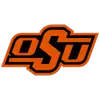Academic fraud and unethical conduct are taken very seriously by both the NCAA and GCU Athletics. If found to be in violation, the sanctions include termination of employment or disqualification of athletic participation.
The following examples apply to both staff, current, and prospective student-athletes:
- Refusal to furnish information relevant to an investigation of a possible violation of an NCAA regulation when requested to do so by the NCAA or the individual's institution;
- Knowing involvement in arranging for fraudulent academic credit or false transcripts for a prospective or an enrolled student-athlete;
- Knowing involvement in offering or providing a prospective or an enrolled student-athlete an improper inducement or extra benefit or improper financial aid;
- Knowingly furnishing or knowingly influencing others to furnish the NCAA or the individual's institution false or misleading information concerning an individual's involvement in or knowledge of matters relevant to a possible violation of an NCAA regulation;
- Receipt of benefits by an institutional staff member for facilitating or arranging a meeting between a student-athlete and an agent, financial advisor or a representative of an agent or advisor (e.g., "runner");
- Knowing involvement in providing a banned substance or impermissible supplement to student-athletes, or knowingly providing medications to student-athletes contrary to medical licensure, commonly accepted standards of care in sports medicine practice, or state and federal law. This provision shall not apply to banned substances for which the student-athlete has received a medical exception per Bylaw 31.2.3.5; however, the substance must be provided in accordance with medical licensure, commonly accepted standards of care and state or federal law;
- Failure to provide complete and accurate information to the NCAA, the NCAA Eligibility Center or an institution's admissions office regarding an individual's academic record (e.g., schools attended, completion of coursework, grades and test scores);
- Fraudulence or misconduct in connection with entrance or placement examinations;
- Engaging in any athletics competition under an assumed name or with intent to otherwise deceive; or
- Failure to provide complete and accurate information to the NCAA, the NCAA Eligibility Center or the institution's athletics department regarding an individual's amateur status.
Communication and/or interaction regarding a student-athlete’s academic progress or academic performance must be directed by staff members from the Office of Student-Athlete Development. Coaches and support staff are precluded from communicating directly with faculty members regarding their student-athlete’s academic progress or academic performance.
Click here for a PDF of the Grand Canyon University recruiting policy and philosophy.
Recruiting Terminology 101
What is a contact?
A contact occurs any time a college coach says more than hello during a face-to-face contact with a college-bound student-athlete or his or her parents off the college’s campus.
What is a contact period?
During a contact period a college coach may have face-to-face contact with college-bound student-athletes or their parents, watch student-athletes compete and visit their high schools, and write or telephone student-athletes or their parents.
What is a recruiting period?
What is an evaluation period?
During an evaluation period a college coach may watch college-bound student-athletes compete, visit their high schools, and write or telephone student-athletes or their parents. However, a college coach may not have face-to-face contact with college-bound student-athletes or their parents off the college’s campus during an evaluation period.
What is a quiet period?
During a quiet period, a college coach may only have face-to-face contact with college-bound student-athletes or their parents on the college’s campus. A coach may not watch student-athletes compete (unless a competition occurs on the college’s campus) or visit their high schools. Coaches may write or telephone college-bound student-athletes or their parents during this time.
What is a dead period?
During a dead period a college coach may not have face-to-face contact with college-bound student-athletes or their parents, and may not watch student-athletes compete or visit their high schools. Coaches may write and telephone student-athletes or their parents during a dead period.
What is the difference between an official visit and an unofficial visit?
Any visit to a college campus by a college-bound student-athlete or his or her parents paid for by the college is an official visit. Visits paid for by college-bound student-athletes or their parents are unofficial visits.
During an official visit the college can pay for transportation to and from the college for the prospect, lodging and three meals per day for both the prospect and the parent or guardian, as well as reasonable entertainment expenses including three tickets to a home sports event.
The only expenses a college-bound student-athlete may receive from a college during an unofficial visit are three tickets to a home sports event.
What are recruiting calendars?
Recruiting calendars help promote the well-being prospective student-athletes and coaches and ensure competitive equity by defining certain time periods in which recruiting may or may not occur in a particular sport.

